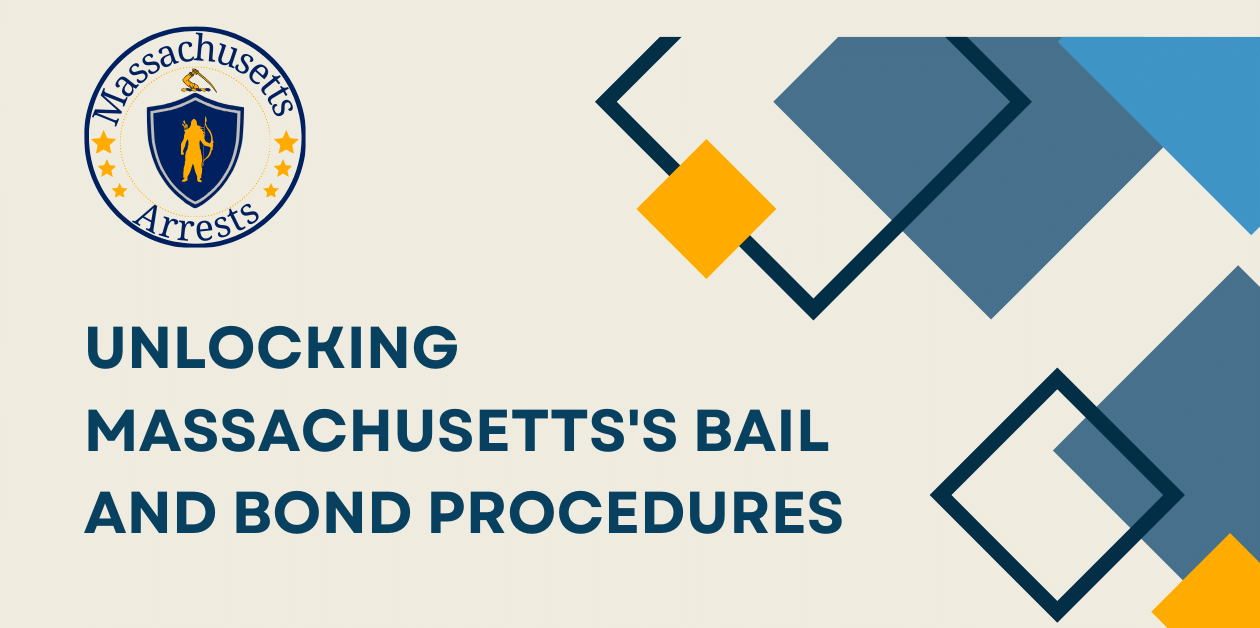Unlocking Massachusetts’s Bail and Bond Procedures
Step into the world of Massachusetts’s bail and bond procedures, where justice is unlocked and freedom is restored. In this comprehensive guide, we will delve into the intricacies of the state’s legal system, shedding light on the processes and regulations that govern the bail and bond process.
From understanding the difference between bail and bond to exploring the various types of bonds available, we leave no stone unturned in unraveling the complexities of Massachusetts’s legal landscape. Whether you are a legal professional seeking to deepen your knowledge or an individual navigating the intricacies of the justice system, this guide is your key to unlocking a clearer understanding of bail and bond procedures in Massachusetts.
Understanding Bail and Bond in Massachusetts
Massachusetts’s legal system is a complex web of procedures and regulations, especially when it comes to bail and bond. In this section, we will break down the fundamentals of bail and bond, providing you with a clear understanding of how these processes work.
The Difference Between Bail and Bond
Before delving deeper into Massachusetts’s bail and bond procedures, it’s essential to grasp the distinction between the two. Bail refers to the temporary release of an accused individual, pending their trial, with the assurance that they will appear for all court proceedings. On the other hand, bond involves a third-party entity, such as a bail bondsman, guaranteeing the accused individual’s appearance in court.
Types of Bonds Available
Massachusetts offers various types of bonds that can be utilized depending on the circumstances. Some common types of bonds include cash bonds, surety bonds, and property bonds. Each type has its own requirements and implications, and understanding these differences is crucial for anyone involved in the legal system.
Requirements for Bail and Bond
When it comes to obtaining bail or bond in Massachusetts, there are specific requirements that must be met. These requirements may include providing identification, proof of a permanent residence, employment verification, and financial statements. Understanding these requirements is essential for individuals seeking bail or bond.
The Bail and Bond Process
The process of obtaining bail or bond in Massachusetts can be intricate, involving multiple steps and interactions with various parties. From the initial arrest to the final court appearance, each stage has its own set of procedures and timelines. In this section, we will guide you through the entire process, ensuring you have a clear understanding of what to expect.
Common Challenges and Pitfalls
While the bail and bond procedures in Massachusetts are designed to ensure fairness and justice, there are common challenges and pitfalls that individuals may encounter. It’s crucial to be aware of these obstacles and how to navigate them effectively. In this section, we will address some of the most common challenges and provide tips for overcoming them.
Legal Professionals and Bail and Bond
For legal professionals, having a comprehensive understanding of Massachusetts‘s bail and bond procedures is essential. This knowledge not only allows them to effectively represent their clients but also ensures they can navigate the legal landscape with confidence. In this section, we will provide insights and resources specifically tailored to legal professionals.
Navigating the Justice System
For individuals who find themselves involved in the justice system, whether as an accused party or a concerned family member, understanding bail and bond procedures is crucial. This section will provide guidance and support for navigating the complexities of the Massachusetts justice system, ensuring that individuals have the necessary information and resources to make informed decisions.
With this comprehensive guide, we aim to provide a clear and concise overview of Massachusetts’s bail and bond procedures. Whether you are a legal professional seeking to deepen your knowledge or an individual navigating the intricacies of the justice system, this guide will serve as your key to unlocking a clearer understanding of bail and bond procedures in Massachusetts.
FAQs
What are the bail and bond procedures in Massachusetts?
In Massachusetts, the bail and bond procedures are governed by state laws and regulations. When a person is arrested and charged with a crime, they may be eligible for release on bail. Bail is a specific amount of money that the defendant must pay to the court as a guarantee that they will appear for their scheduled court dates.
How is bail determined in Massachusetts?
Bail amounts in Massachusetts are set by judges based on various factors such as the severity of the crime, the defendant’s criminal history, and the likelihood of the defendant appearing in court. The judge takes into consideration the potential flight risk and the safety of the community when determining the bail amount.
What happens if a defendant cannot afford to pay the bail amount?
If a defendant cannot afford to pay the bail amount set by the court, they have the option to seek assistance from a bail bondsman. A bail bondsman charges a fee, typically a percentage of the total bail amount, and provides a guarantee to the court that the defendant will appear for their court dates.
Can bail be denied in Massachusetts?
Yes, bail can be denied in certain circumstances in Massachusetts. If the court determines that the defendant poses a significant flight risk or a danger to the community, bail may be denied. Additionally, if the defendant is charged with certain serious offenses, such as murder or certain drug offenses, bail may be denied or set at an extremely high amount.
What happens if a defendant fails to appear in court after being released on bail?
If a defendant fails to appear in court after being released on bail, a warrant may be issued for their arrest. The court may also revoke their bail and require them to be held in custody until their trial. Failing to appear in court can have serious consequences and may result in additional charges.
Are there any alternatives to bail in Massachusetts?
Yes, Massachusetts offers alternatives to bail such as pretrial services and release on personal recognizance (PR). Pretrial services involve supervision by a probation officer and may require the defendant to comply with certain conditions, such as regular check-ins. Release on personal recognizance allows the defendant to be released without having to pay bail, but they must promise to appear in court as required.







